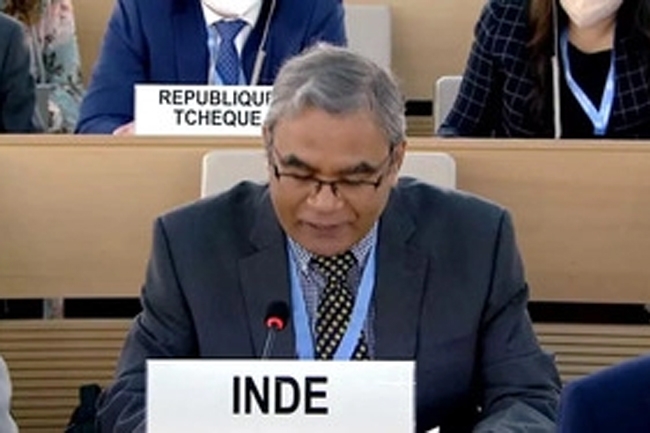India urges political solution to ethnic issue involving Tamil minority in SL

India on Monday expressed concern at the “lack of measurable progress” by the Sri Lankan government on its commitments regarding a political solution to the ethnic issue involving the island nation’s Tamil minority.
While outlining India’s position at an interactive dialogue on the Office of the UN High Commissioner for Human Rights’ latest report on Sri Lanka, India’s permanent representative to the UN in Geneva, Indra Mani Pandey, also said the current crisis in Sri Lanka has “demonstrated the limitations of debt-driven economy and the impact it has on the standard of living”.
People familiar with the matter said the stance adopted by India on the issue was stronger than in the past. This comes against the backdrop of strains in India-Sri Lanka relations caused by a Chinese surveillance vessel’s visit to the Chinese-controlled port of Hambantota.
Noting that India has always believed in the responsibility of countries to promote and protect human rights and constructive international dialogue and cooperation guided by the principles of the UN Charter, Pandey expressed the Indian side’s concern at the “lack of measurable progress by Government of Sri Lanka on their commitments of a political solution to the ethnic issue”.
Such a political solution includes “full implementation of the 13th Amendment of the Constitution, delegation of powers to Provincial Councils and holding of Provincial Council elections at the earliest”, Pandey said.
In recent years, India has taken up with the Sri Lankan side the issue of implementing the 13th amendment to Sri Lanka’s Constitution and holding elections to provincial councils to give greater autonomy to the Tamil minority.
The Sri Lankan leadership has shied away from committing to full implementation of the constitutional amendment and indicated it will not go against the wishes of the Sinhala majority while working for any resolution in Tamil-inhabited areas.
Pandey further said: “India’s consistent view on peace and reconciliation in Sri Lanka has been for a political settlement within the framework of a united Sri Lanka, ensuring justice, peace, equality and dignity for the Tamils of Sri Lanka.”
He noted that the current crisis in Sri Lanka has “demonstrated the limitations of the debt-driven economy” and said: “It is in Sri Lanka’s best interests to build the capacity of its citizens and work towards their empowerment, for which devolution of power to the grassroots level is a pre-requisite.”
In this context, operationalisation of provincial councils through early elections will “enable all citizens of Sri Lanka to achieve their aspirations for a prosperous future”, he said.
“We, therefore, urge Sri Lanka to take immediate and credible action in this regard,” Pandey added.
